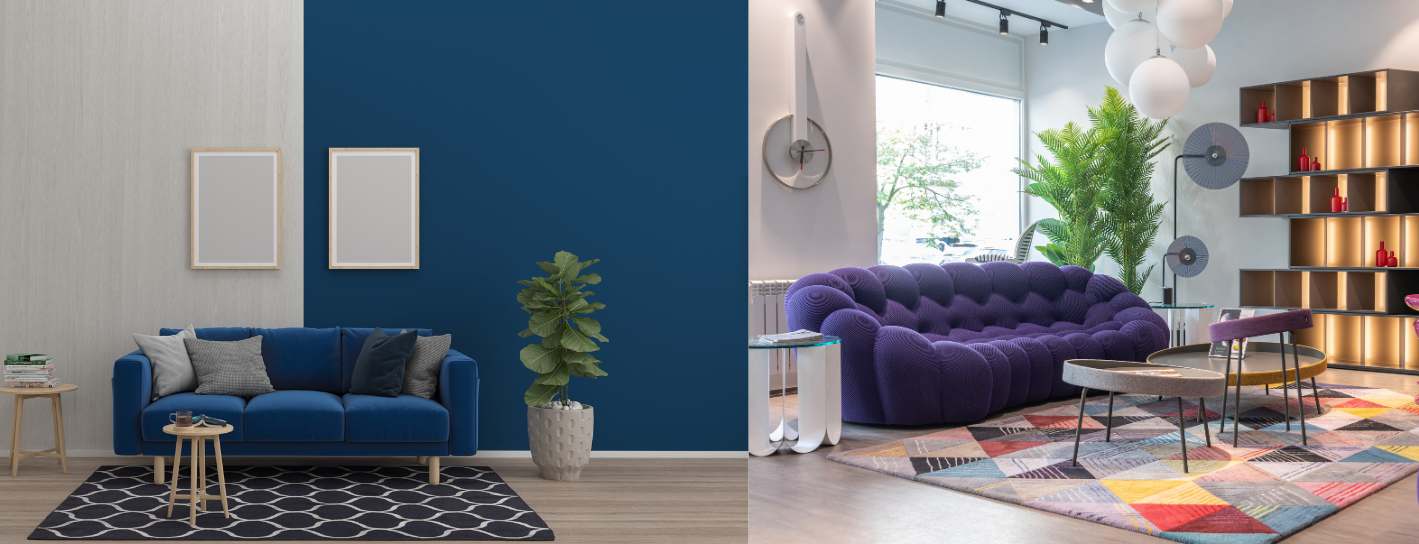Our homes are our castles, and we like nothing more than styling and personalising them to our own tastes. DIY is a huge business in the UK, and almost all of us have an ongoing project, improving or changing some aspect of our home, changing wallpaper, paint colours, or maybe even tiles and flooring. But how much could this DIY obsession affect the value of our home?
Interior design is a huge industry; from bespoke interiors to magazines showcasing beautiful homes, there is a fascination with interior design, and trends seem to change dramatically as the years go by – who remembers those floral chintz sofas from the 80s?
As trends change with the seasons, new styles and colour schemes increase and decrease in popularity. One moment we’re all painting our homes white and grey, and the next, we’re buying vibrant jungle-themed wallpaper. But is there a point when your personal style will begin to have an impact on the value of your home? Could a wallpaper pattern really decrease your home’s value?
The interior of a home can make or break a sale. If you are too ‘out there,’ you may put buyers off. Or at least have to pinpoint the exact buyer who is a) looking to buy a property, b) is looking to buy a property the size, style and location of yours, c) at your asking price, and finally, d) with your exact taste in interiors. That is quite a lot of factors to find a buyer for your home, isn’t it?
A manor house would be lovely to buy but imagine the entire interior is bright red, filled with gold-plated fittings, frilly furniture, tasselled lampshades and taxidermy on every shelf. Would you pay the asking price? Or would you make a lower offer because you’d have to arrange for the decorators to come as soon as you completed the purchase? Unless, of course, you happen to like that sort of thing.
Retro interiors, particularly from the 60s and 70s, are often very popular as long as it’s a nod to the era and not an exact replica. The idea is to incorporate hints into the property from that time, not turn your home into a museum. Avocado bathroom suites might be coming back into fashion, but it could be more likely to put a buyer off.
Minimalist styles tend to work best and could be the perfect solution to selling your home for the highest possible price. Simple, clean and tidy, a minimalist interior would likely feel empty and sparse to the owner of the red taxidermy house. However, it is most likely to appeal to the largest number of would-be buyers, which is the key when selling your home.
Scandi interiors are ever-popular for this very reason. It is a simple style without any overbearing patterns or colour schemes to put anyone off. And rather than dull and clinical, there are often pops of colour to create interest and add cosiness to the property.
In an ideal world, your home will attract many buyers with multiple offers, increasing the demand and, therefore, the value. If your home is so quirky that you really have to find the one buyer that will like it, there is limited demand, which could affect the value negatively.
So, by all means, personalise your homes, but if your taste is very quirky, would you be better off toning that down a little when you decide to sell?
We have experts in the team that can help you with this if you are unsure.
If you are thinking of selling your home, get in touch with our team of property experts to arrange a valuation today.






















